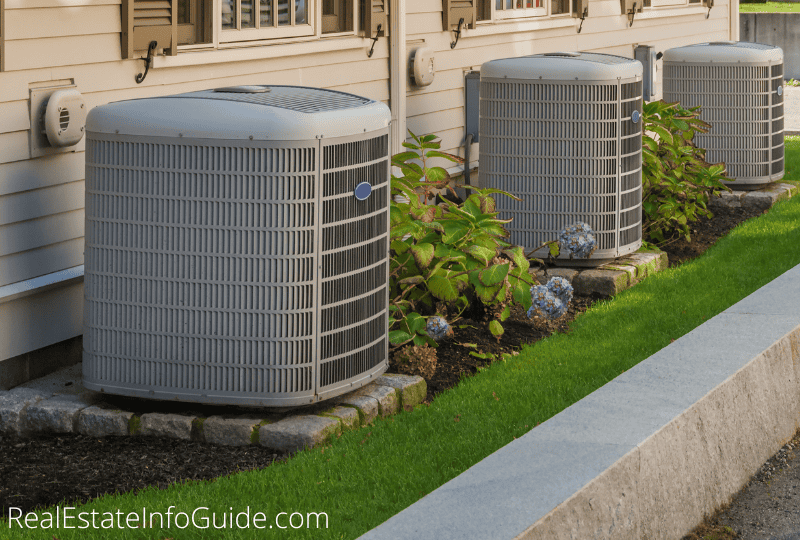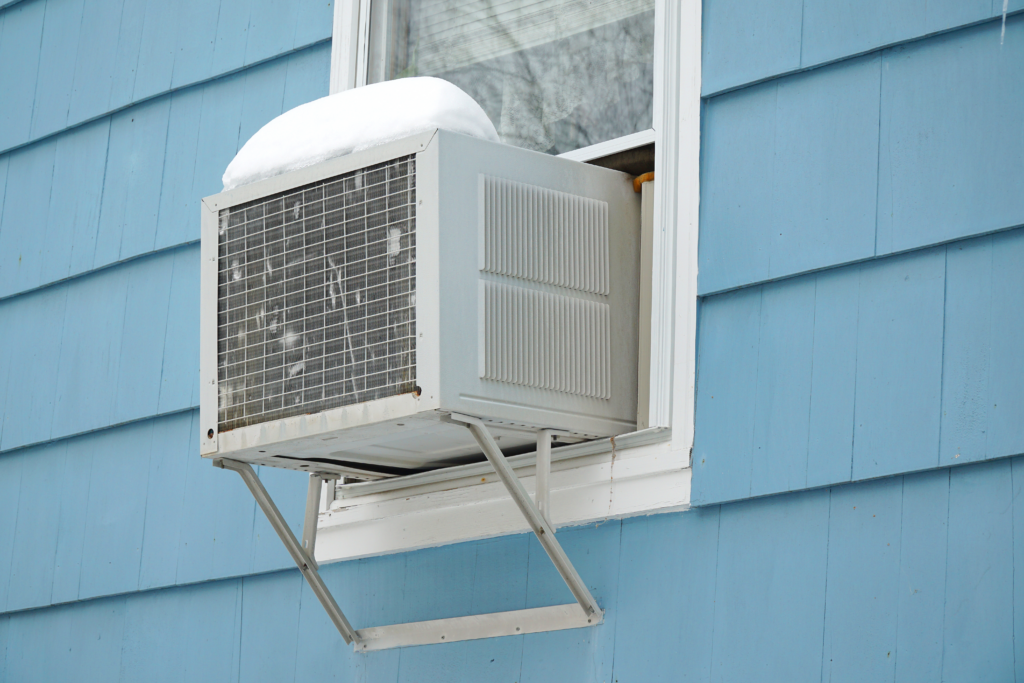
In the peak of summer, the right air conditioner is key—not just for comfort but also for energy efficiency. It’s crucial to choose a system that matches your home’s size, adapts to your local climate, and leverages new technologies for savings.
Modern air conditioners are not only about cooling. They’re built to be power-efficient, utilizing renewable energy like solar, to reduce electricity costs and support the environment. Knowing your cooling needs and the latest in air conditioning can make your home the ideal escape from the heat, blending comfort, cost savings, and eco-friendliness.
Understanding Your Cooling Needs
Selecting the right air conditioner is pivotal for achieving optimal home comfort and energy efficiency. According to LG Home Comfort, for a home that’s around 1,200 square feet and receives ample sunlight, the ideal air conditioner capacity is between 21,000 to 24,000 BTUs. This recommendation takes into account various factors such as insulation quality, room configuration, and direct sun exposure. Accurate sizing ensures that your cooling system efficiently manages the temperature without unnecessary energy expenditure.
Types of Air Conditioning Units for Homes
Choosing the right air conditioning system for your home involves understanding the different types available and how they align with your specific needs. Here’s a look at the main types of air conditioning units for homes, how each operates, and their advantages and disadvantages:
-
Central Air Conditioning
Central air conditioning systems are the go-to for whole-home cooling, efficiently circulating cool air through a network of ducts and vents. They stand out for their air filtration capabilities, which significantly improve indoor air quality by capturing dust, pollen, and other allergens. Hence, this AC type can help increase the oxygen levels in your home.
Most central AC systems are compatible with programmable thermostats, allowing homeowners to easily set and adjust temperatures according to their schedules, ensuring convenience while optimizing energy consumption. Additionally, these systems often include features for humidity control, enhancing indoor comfort during the muggier months.
Pros:
- Efficiently cools large homes and multiple rooms evenly
- Improves indoor air quality by filtering air as it circulates
- Can be integrated with heating systems for all year comfort
Cons:
- Can be expensive to install, especially if ductwork is not already in place
- Requires regular maintenance for efficient running
For central air conditioning systems, it’s imperative to replace or clean the air filters every one to three months. An annual check-up by a professional is crucial for inspecting the system’s major components, such as the compressor and evaporator coil, and ensuring they operate efficiently.
-
Window Units
Window units offer a compact and convenient solution for cooling individual rooms or small spaces. These units are characterized by their adjustable settings, including temperature control and fan speeds, with some models also featuring a dehumidifier mode for added comfort.

Pros:
- Affordable and easy to install
- Ideal for cooling small spaces or single rooms
- Can be removed or installed seasonally
Cons:
- Not suitable for cooling large spaces or multiple rooms
- Can block natural light and use up a window space
- May be noisy and less energy-efficient than other types
Window air conditioner units require monthly filter cleaning or replacement to prevent dust buildup and maintain air quality. It’s also essential to ensure that the window seal around the AC unit is tight to prevent cool air from escaping. Annually, the coils and fins should be gently brushed and vacuumed to remove dust and debris that can impede efficiency.
-
Ductless Mini-Split Systems
Ductless mini-split systems provide a versatile and efficient approach to home cooling. Their sleek, modern design makes them less visually intrusive than other types, and they’re known for quiet operation, ensuring minimal noise disturbance.
These systems are highly energy-efficient, offering significant savings on energy bills due to reduced energy loss, a common issue with ducted systems. The independence of each unit allows for personalized comfort without the need to cool unoccupied spaces.
Pros:
- No ductwork needed, making them easier to install in homes without existing ducts
- Energy-efficient, as there’s no loss of cool air through ductwork
- Quiet operation and flexible installation options
Cons:
- More expensive upfront cost than window units
- Indoor units are visible and may not blend seamlessly with interior decor
An annual cleaning of the system’s coils and fins is recommended to prevent any efficiency losses. Professional maintenance is also advisable to check refrigerant levels and electrical connections, ensuring the system operates optimally.
-
Portable Air Conditioners
Portable air conditioners are prized for their flexibility and ease of movement, allowing them to be relocated to wherever cooling is needed most. These stand-alone units require no permanent installation, making them ideal for temporary setups or for use in rental properties.
Features often include not only cooling but also dehumidifying functions and air filtration, enhancing the living environment. Some models boast self-evaporative technology, which automatically expels condensation, reducing the need for manual water tank emptying.
Pros:
- Versatile and movable to where cooling is needed
- No permanent installation required
- Can be stored away when not in use
Cons:
- May not be as efficient as other types for cooling larger areas
- Can take up floor space and be less aesthetically pleasing
- Exhaust hose needs to vent outside, requiring proximity to a window or door
Maintenance of portable air conditioners involves regularly checking and emptying the water collection system to avoid overflow and potential damage. Keeping the filters clean and ensuring the exhaust hose is not obstructed are critical for maintaining cooling efficiency.
-
Evaporative Coolers (Swamp Coolers)
Swamp coolers offer an environmentally friendly and cost-effective method of cooling, particularly suited to dry climates. Utilizing the natural process of water evaporation to cool the air, these units also humidify, adding moisture to dry indoor air.
Their operation is more energy-efficient than traditional air conditioners, leading to lower utility costs. Maintenance is straightforward, involving regular cleaning and the replacement of evaporative pads, making them a simple yet effective cooling option.
Pros:
- More energy-efficient than conventional air conditioners in suitable dry climates
- Adds moisture to the air, highly beneficial in dry environments
- Lower installation and operating costs
Cons:
- Less effective in humid climates, as they rely on the ability to evaporate water into the air
- Requires regular maintenance of pads and water levels
- Can increase humidity to uncomfortable levels in already moist conditions
Evaporative coolers require regular maintenance of the cooling pads, which should be inspected and replaced as necessary to ensure air quality and cooling efficiency. The water tank should be drained and cleaned periodically to prevent mold and mildew growth. It’s also important to maintain the correct water level in the unit; too little water can cause pump damage, while too much can lead to inefficiencies.
Related Reading: Can I Run my Swamp Cooler All Day?
Things to Consider When Choosing the Right AC System
When selecting the perfect air conditioning system for your home, a comprehensive approach that considers the unique aspects of your living space is essential. Here’s how you can align your home’s characteristics with the capabilities of an air conditioning system for optimal comfort and efficiency:
-
Home Layout and Square Footage
The foundational step involves understanding the size and configuration of your space. An air conditioner’s capacity should be carefully matched to your home’s square footage to ensure efficient cooling. Homes with open plans or multiple levels might benefit from zoning systems, allowing for varied temperature settings across different areas, enhancing both comfort and energy efficiency.
-
Humidity Control
In regions prone to high humidity, choosing an air conditioner with built-in dehumidification features can maintain comfortable humidity levels without overcooling. Effective humidity management is crucial for preventing mold growth and reducing allergens, thus promoting a healthier indoor environment.
-
Sunlight Exposure and Insulation
The amount of sunlight your home receives and the quality of its insulation significantly influence your cooling needs. Sunlit rooms require more powerful cooling, which must be considered when selecting an AC unit. Good insulation enhances the efficiency of your air conditioning by keeping cool air inside, reducing the workload on your system.
-
Energy Efficiency
Cutting energy cost is one of the indoor improvements that can increase a home’s value. Models with higher SEER (Seasonal Energy Efficiency Ratio) ratings consume less electricity, leading to lower energy bills. Opting for ENERGY STAR-certified air conditioners ensures you’re selecting a unit that exceeds minimum government standards for efficiency.
-
Advanced Features for Comfort and Efficiency
Technological advancements such as variable speed technology and smart thermostats can significantly improve the comfort and operational efficiency of your air conditioning system. These features provide precise cooling adjustments and allow for remote temperature control, ensuring your home remains a comfortable sanctuary.
-
Maintenance and Durability
The ease of maintenance, durability, and warranty of an air conditioning system are also important. A durable system that is easy to maintain and backed by a comprehensive warranty offers peace of mind, ensuring that your investment continues to provide comfort and efficiency in the long run.
Conclusion
Finding the perfect air conditioner involves blending an understanding of your home’s distinctive requirements with insights into the latest HVAC technologies. Making an informed choice not only elevates the comfort of your living space but also supports a more sustainable approach to cooling. By prioritizing efficiency and informed selection, you contribute to a more comfortable, energy-conscious home environment.
